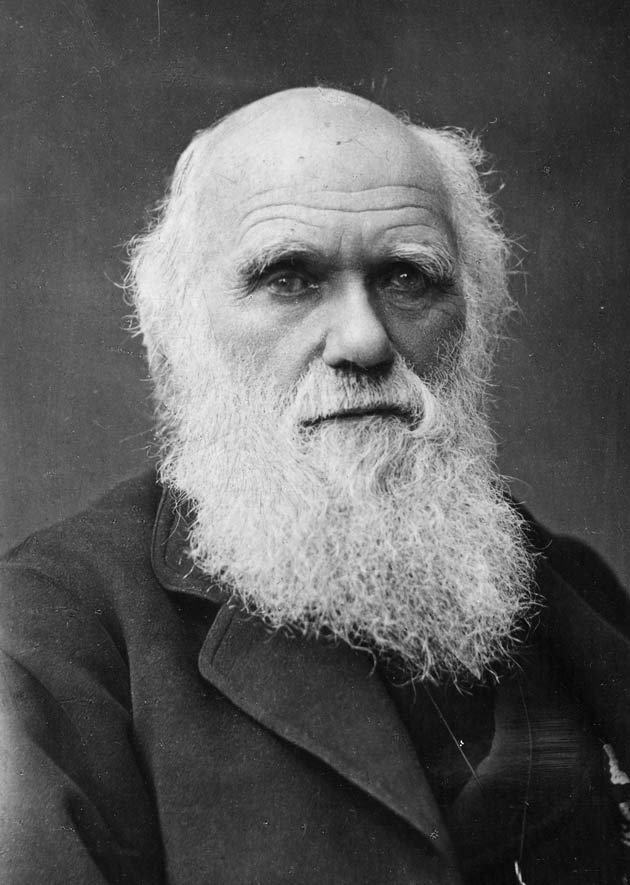Teachers: Creationism Belongs in Science Class

Get the world’s most fascinating discoveries delivered straight to your inbox.
You are now subscribed
Your newsletter sign-up was successful
Want to add more newsletters?

Delivered Daily
Daily Newsletter
Sign up for the latest discoveries, groundbreaking research and fascinating breakthroughs that impact you and the wider world direct to your inbox.

Once a week
Life's Little Mysteries
Feed your curiosity with an exclusive mystery every week, solved with science and delivered direct to your inbox before it's seen anywhere else.

Once a week
How It Works
Sign up to our free science & technology newsletter for your weekly fix of fascinating articles, quick quizzes, amazing images, and more

Delivered daily
Space.com Newsletter
Breaking space news, the latest updates on rocket launches, skywatching events and more!

Once a month
Watch This Space
Sign up to our monthly entertainment newsletter to keep up with all our coverage of the latest sci-fi and space movies, tv shows, games and books.

Once a week
Night Sky This Week
Discover this week's must-see night sky events, moon phases, and stunning astrophotos. Sign up for our skywatching newsletter and explore the universe with us!
Join the club
Get full access to premium articles, exclusive features and a growing list of member rewards.
From the LiveScience Water Cooler.
A new survey in the UK found that 29 percent of teachers surveyed via email think creationism and intelligent design should be taught as science. And nearly 50 percent said they think excluding these ideas from the classroom would alienate students from science.
Big caveat: It is unclear if the survey was done by an objective organization. Rather, a group called Teachers TV emailed a questionnaire to 10,600 education professionals. Only 1,210 responded. Could be, as The Guardian newspaper points out, that "only those teachers with the strongest views might have replied."
In the United States, meanwhile, a recent survey found that one in eight U.S. high school biology teachers (12 percent) presents creationism or intelligent design in a positive light in the classroom, despite a federal ruling against it. In a 2005 case in Pennsylvania, U.S. District Judge John E. Jones called a school district's policy of teaching intelligent design "breathtaking inanity."
In a 2005 Pew Research Center survey, 42 percent of U.S. residents said they held strict "creationist'' views that "living things have existed in their present form since the beginning of time.''
In other research, a comparison of peoples' views in 34 countries finds that the United States ranks near the bottom when it comes to public acceptance of evolution. Only Turkey ranked lower. Meanwhile, the Creation Museum in Louisville, Ky., has proven quite popular.
All that said, intelligent design is not a scientific theory. It is an idea that has been roundly debunked by science, but its tricky language and snake-oil salesmanship lead many to believe it is far more substantive than is actually the case. It is a cloaked attempt to put religion in science classrooms, scientists contend. Creationism — the belief that God created man and everything else about 6,000 years ago (some go on to argue that man walked the planet alongside dinosaurs) — likewise has zero support from science and scientific evidence. The well-founded theory of evolution, scientists say, is the only idea supported by evidence to explain the diversity of life on Earth. The evidence comes from multiple fields of reseach and many lines of investigation.
Get the world’s most fascinating discoveries delivered straight to your inbox.
None of this means religion and science are irreconcilable. Even the Vatican has said intelligent design doesn't belong in science class (the Vatican has also said it's OK to believe in aliens). And many scientists are indeed religious, they just generally don't take the Bible literally on the point of creationism.
In the UK right now, the debate for some revolves around this question: Should creationism be entirely banned from science classrooms or, when students bring it up, should it be disussed not as a scientific theory but as a recognized "world view?"
A coalition of scientists, including the U.S. National Academy of Sciences, American Institute of Physics and National Science Teachers Association, released this statement earlier this year:
"The introduction of 'non-science,' such as creationism and intelligent design, into science education will undermine the fundamentals of science education. Some of these fundamentals include using the scientific method, understanding how to reach scientific consensus, and distinguishing between scientific and nonscientific explanations of natural phenomena."
Robert is an independent health and science journalist and writer based in Phoenix, Arizona. He is a former editor-in-chief of Live Science with over 20 years of experience as a reporter and editor. He has worked on websites such as Space.com and Tom's Guide, and is a contributor on Medium, covering how we age and how to optimize the mind and body through time. He has a journalism degree from Humboldt State University in California.
 Live Science Plus
Live Science Plus











